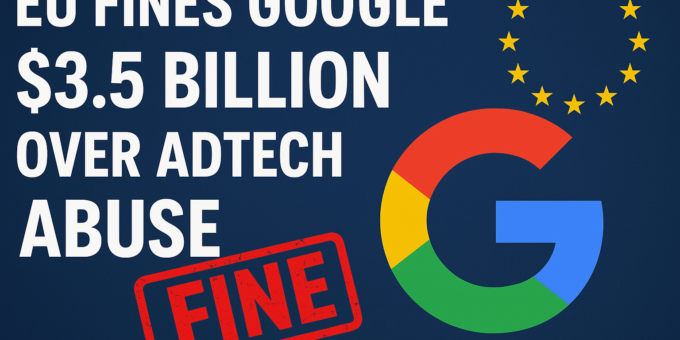
Introduction to the Landmark Fine
The European Union has imposed a massive $3.5 billion fine on Google. Regulators accuse the tech giant of abusing its dominance in the digital advertising market. This penalty highlights the EU’s continued crackdown on Big Tech practices.
Why Google Faces the $3.5 Billion Penalty
Google allegedly manipulated its AdTech services to block fair competition. The EU claims the company prioritized its own platforms over rivals. By limiting advertiser and publisher choices, Google gained an unfair advantage. Officials argue this harmed innovation and raised costs across the industry.
The Impact on Digital Advertising
This fine shakes the global advertising ecosystem. Publishers rely on AdTech networks to connect with advertisers. When one company dominates, market diversity suffers. The EU hopes this ruling will create a fairer digital ad market. Smaller players may now find new opportunities.
EU’s History of Regulating Big Tech
The European Union has long challenged Silicon Valley giants. Past cases include fines against Meta, Amazon, and Apple. Google itself has faced several penalties over search and Android practices. This new action shows Europe’s determination to enforce digital competition laws.
What Google Says About the Decision
Google denies wrongdoing and plans to appeal. The company insists its tools benefit advertisers and publishers. It claims its services help businesses reach wider audiences effectively. However, regulators argue that such claims mask anti-competitive strategies.
Potential Consequences for Google
The fine is not just financial. Google could face stricter oversight on its advertising tools. Competitors may gain space to grow in the European market. This decision may also influence regulators in the U.S. and Asia. Other countries could follow the EU’s lead with similar actions.
How This Shapes the Future of AdTech
The decision signals a turning point for online advertising. More transparency and competition may reshape the way ads are bought and sold. Smaller companies may finally gain ground against dominant platforms. For advertisers, this could lead to lower costs and more choices.
Key Takeaways for Businesses and Consumers
Businesses must prepare for changes in digital ad strategies. Dependence on Google’s platforms may decline as alternatives rise. Consumers may also benefit from fairer pricing and broader online options. This fine reinforces the need for balance between innovation and fair competition.
Conclusion
The EU’s $3.5 billion fine against Google sends a clear message. No company is above competition laws. With regulators increasing scrutiny, the digital advertising world faces a new era. Businesses and consumers alike should expect major changes in the online marketplace.
